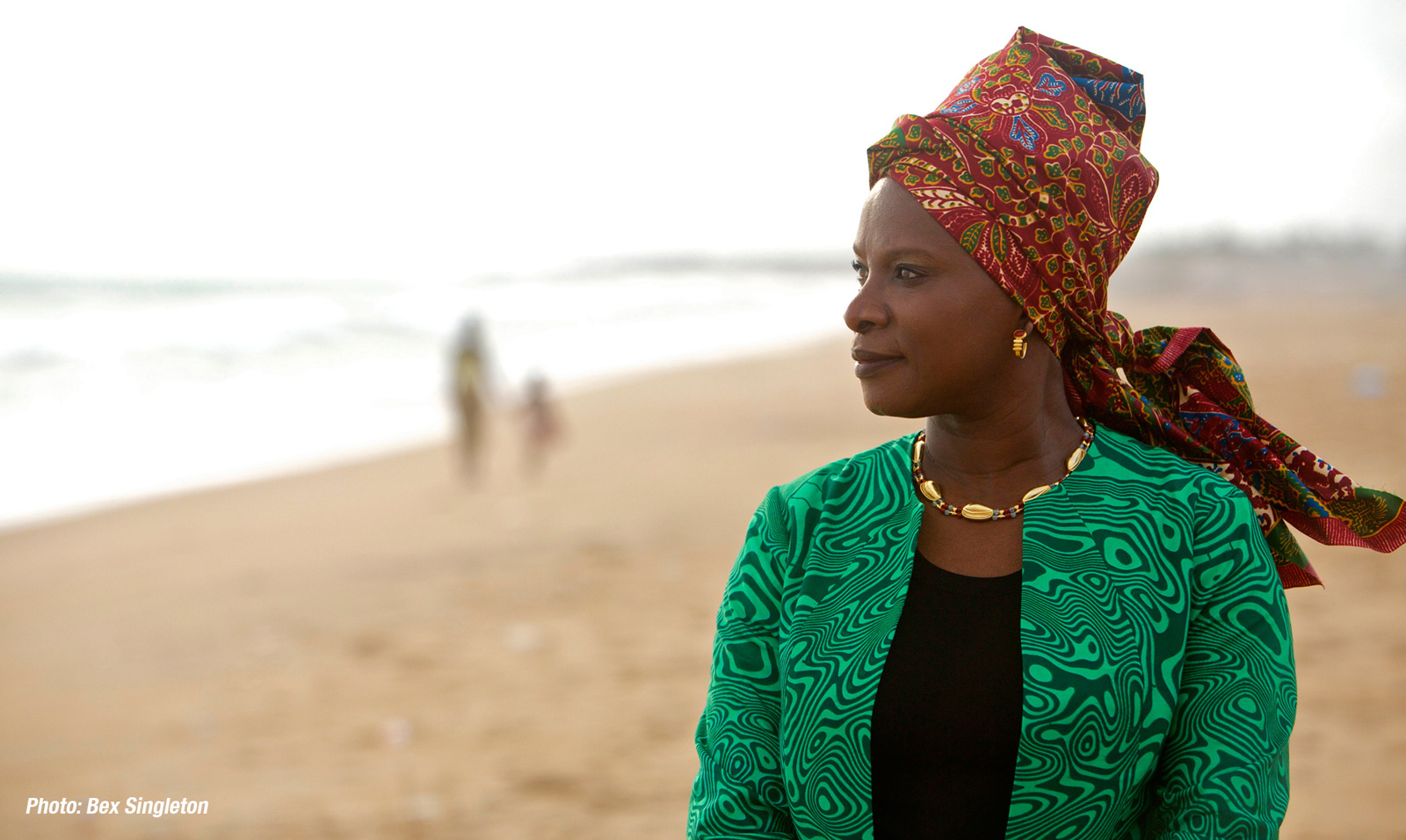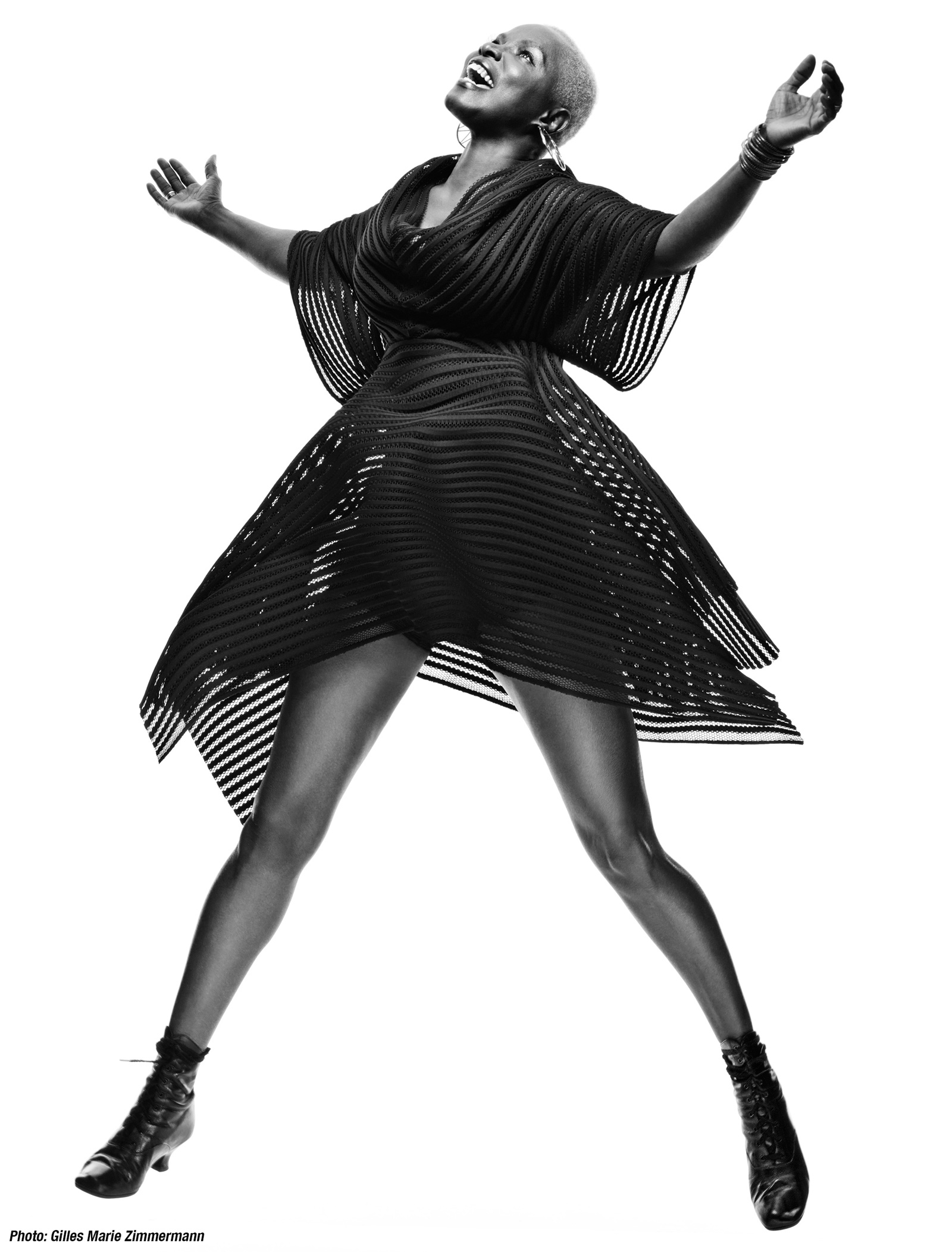Telling the WOMADelaide crowds to sit down is a tall order. There’s so much dancing on stage and in the crowd.
But just occasionally there’s a performance of such subtle beauty and dynamic range – such as with the performance of Ravi Shankar and Anoushka Shankar six years ago – that WOMADelaide organisers insist the crowd sit on the grass and focus.
The big sit this year will be to bask in the magic of Angélique Kidjo with guitarist David Laborier and the Adelaide Symphony Orchestra.
This extract from a classic interview for the New Internationalist magazine illustrates just how many strings The Grammy award-winning musician, writer and UNICEF goodwill ambassador has to her bow. You can read the full interview here.
NI: You left Benin in 1983 to study jazz in Paris, and ended up finding Africa elsewhere: in jazz music in France, then the blues of the US, the carnival and candomblé of Brazil, the salsa of Cuba. Is this testament to the resilience of African music?
Kidjo: Exactly! And it is also a testament to the resilience of the human soul. Slavery had deprived African people of their rights and dignity, but they found a way to resist and keep their identity and pride alive through music. In a way it is the dialectic of the master and the slave: today the whole world has embraced the rhythms and the melodies of the slave to whom humanity was denied. In every country I visited in the Americas I felt at home, musically. I was able to start a dialogue through songs, even when I was not speaking the language.
 NI: You don’t like the term ‘world music’. Can you explain why?
NI: You don’t like the term ‘world music’. Can you explain why?
Kidjo: It comes from a discussion I had with the [South African singer and civil rights activist] Miriam Makeba. In a hotel room in Switzerland before a show, she said to me: ‘Who invented this expression “world music”? Someone must have first called it “Third World music” and removed the word “third” to be politically correct!’ I think she was right. People like labels, but I don’t think any music should be put in a box. Anyway, you understand that it won’t be easy to put me in a little box.
NI: What comes first: the dance or the beat?
Kidjo: In Africa singing, dancing, playing an instrument, wearing a costume: none of these can be separated. They’re all part of a unique form of expression: you could joke it is like a Broadway show. When we’re doing field recording in Benin, the sound engineer always says to the traditional singers: ‘You don’t have to dress up!’ But they can’t help it; they always show up with the most beautiful costumes.
 NI: Your work places great emphasis on respect for women and their integrity: their works, their creativity, their freedom, their bodies. What do you see as the greatest threats to them in Africa right now?
NI: Your work places great emphasis on respect for women and their integrity: their works, their creativity, their freedom, their bodies. What do you see as the greatest threats to them in Africa right now?
Kidjo: There are many: for instance, the most likely person to be infected with HIV is a married African woman. But I don’t want to speak just about the threats and pain they suffer: I want to showcase their amazing beauty and strength. This is what my new album Eve is about. I hope that when you listen to the beautiful African women’s choir, you’ll feel inspired by their energy.
You can read the full interview here.
Angélique Kidjo appears at WOMADelaide:
- In concert – Friday 11th March 2016, 8:15pm
- Artists in Conversation – Saturday 12th March 2016, noon
- Taste The World (Angelique introduces us to the food and culture of her homeland) – Sunday 13th March 2016, 1pm
